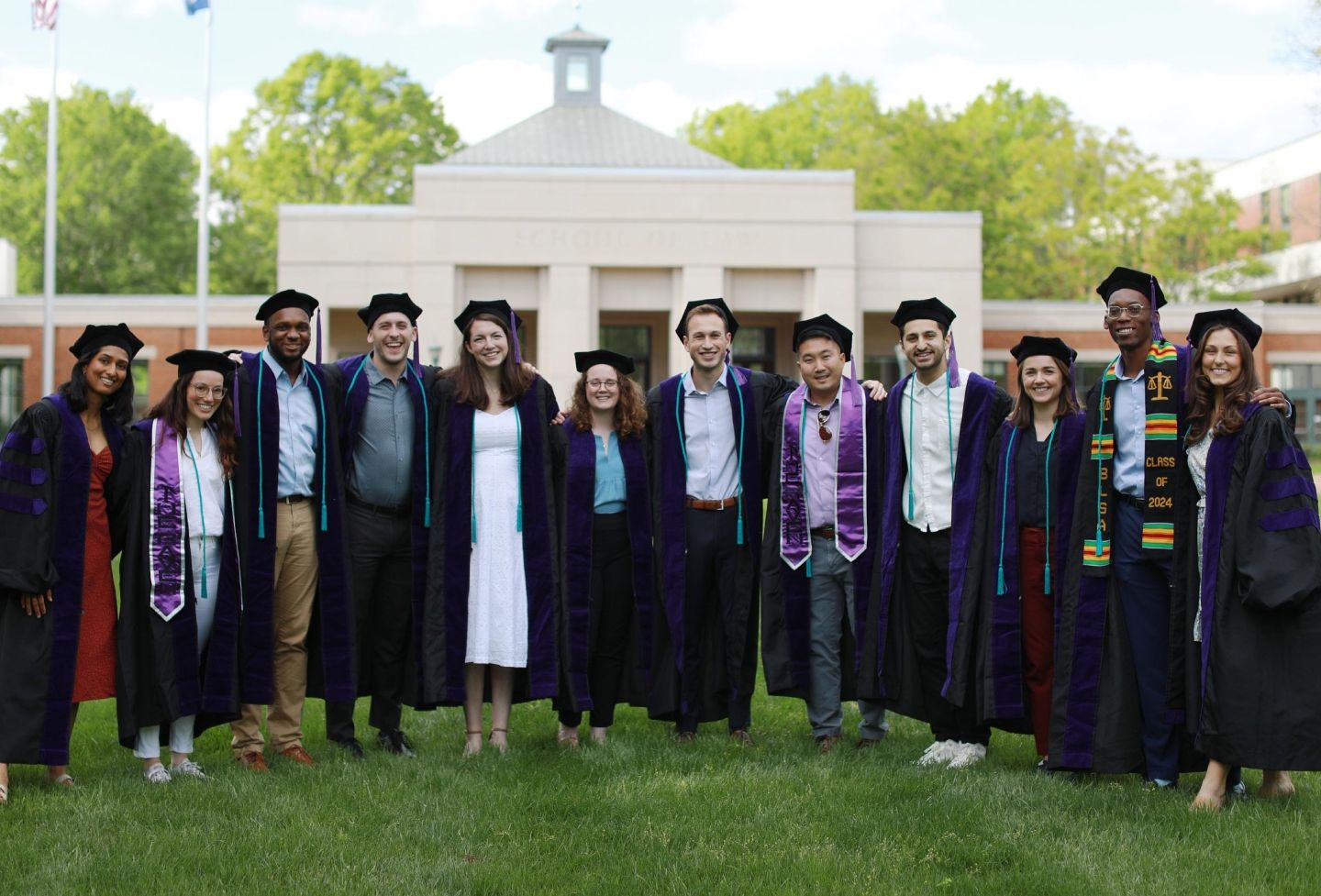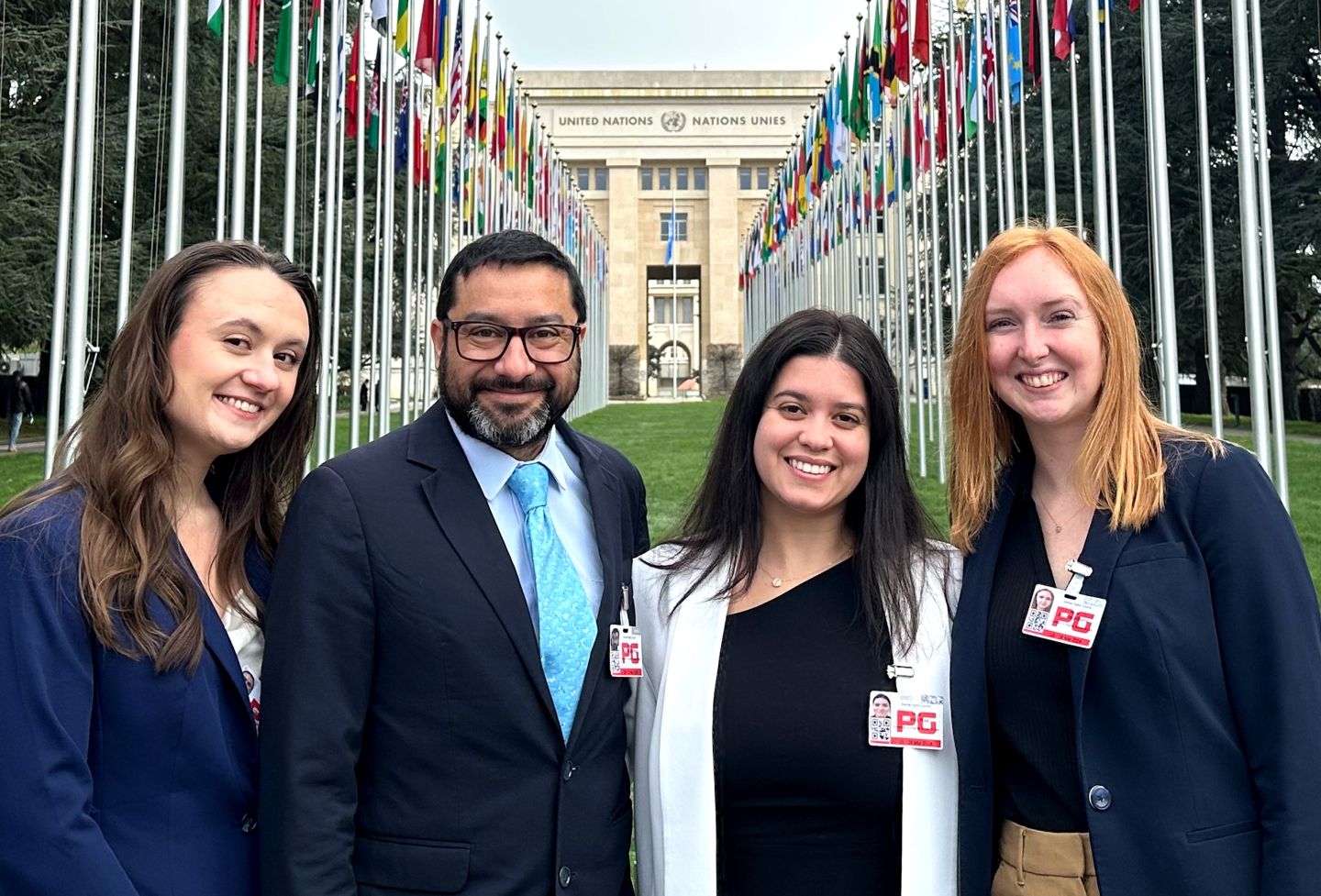New Procedures Needed to Secure Rights of Terror War Detainees, Panelists Say

The war on terror defies conventional legal structures for protecting individual rights and requires a new procedure for holding suspected terrorists that finds a middle ground between customary criminal justice and prisoner-of-war rules, according to a panel of professors and lawyers speaking at the J.B. Moore Society's conference on International Law and Practice in American Constitutionalism at the Law School March 20.
"The government says the detention of terrorists is necessary to prevent new attacks," said Jenny Martinez, assistant professor of law at Stanford Law School and co-counsel for Jose Padilla, a U.S. citizen who is being held as an al Qaeda terrorist. She then asked, "How do we fight terror and maintain the rule of law? Other countries have come up with other processes. Where do presidential powers in this war end? Is suspension of the First Amendment next? What are we trying to preserve?"
Individuals labeled "enemy combatants" do not enjoy the rights of citizens or those of prisoners of war, she said, noting that the term enemy combatant does not appear in any treaties, nor is it defined in the USA Patriot Act. Meanwhile, some 700 suspected terrorists are detained at the U.S. Naval Base at Guantanamo and three U.S. citizens, including Padilla and Yasir Hamdi, are held in jails here. "The issue in the Hamdi and Padilla cases is to what extent the courts have to police the bounds of the president's authority to detain individuals who have an ostensible connection to the war on terrorism," agreed Joe Margulies, currently an attorney at the MacArthur Justice Center, a non-profit public interest law firm at the University of Chicago Law School. He is also lead counsel for Rasul, et al., v. Bush, et al.
He said the United States needs "a summary but fair process by which you can tell who is innocent from those who are properly detained." For now, it's "whoever the president designates," with none of the traditional limits that derive from nation — versus-nation conflict.
"War powers are a departure from the settled rules of peacetime democracy," he said. "You can set this process up and not interfere with military needs. The military says it is doing this, but they haven't done anything adequate."
The "exceptionalism" of the government's argument has no limits, he said. "My proposition is that these circumstances require more judicial review. What is worrisome to me is that the ordinary checks on presidential power don't apply, they say, because of the unique nature of the conflict.
"We are fighting an ideology." But the experience of Israel and Northern Ireland suggest it could be a fight of decades, he warned.
"Other democratic nations have departed from the traditional criminal justice model-the United Kingdom, India and Israel," Martinez said. "Their practices are all objected to by human rights groups, but they are still more normal than the U.S. response. Typically they have no more than a 180-day limit on detention before prisoners must be brought before a judge. India has abused this some."
"The circumstances of the war on terror indicate a need for even greater protections for individuals. Anybody could be designated an enemy combatant, so there is greater opportunity for abuse."
She said President Bush should go to Congress and ask for specific powers to detain and not rely on "amorphous justifications." Congress approved Lincoln's suspension of habeas corpus during the Civil War, she noted. "This congress has not done so. I'd say we've come up very short compared to other countries."

"What would you do if it were your responsibility to prevent the use of a suitcase nuclear bomb in New York or Washington?" countered Brad Berenson, who was an associate counsel to President George W. Bush from 2001 to 2003 and now practices with the Washington, D.C., office of Sidley Austin Brown & Wood.
The government bases its policy on Quirin, Ex Parte, he explained. The 1942 case involved eight captured German saboteurs who were convicted by a military commission set up by President Franklin D. Roosevelt and subsequently executed. The Supreme Court unanimously ruled that the commission was justified by the president's power as commander-in-chief and by congressional acts authorizing military trials of those accused of offenses against the laws of war. The Court said the prisoners had a right to judicial review, but rejected their applications for writs of habeas corpus and found that that they had been sufficiently charged with unlawful belligerency.
"You can't kill someone you capture on the battlefield," Berenson said. "They are too valuable as an intelligence source and too dangerous to release. So what would you do?
"The answer came from the law of war and government legal experts in the Departments of Justice, State, and Defense," he continued. "The conceptual model here is the prisoner of war model, though not in the technical Geneva sense, because they are not lawful combatants. They don't have the sponsorship of a state. They do pose an existential threat to the country."
Existing law is very clear, he said, that aliens do not have a right of access to American courts. U.S. citizens do have access and there is a check on the arbitrariness of the executive--to ensure that the case does meet the Quirin standard. He pointed out that Padilla and Hamdi both promptly filed habeas petitions.
The role of courts "is limited and for good reason," Berenson asserted. "If courts were to interfere in the president's war powers, the … process of fighting would turn into one of fighting legal sideshows. The chain of command would break down because soldiers would worry that their actions would be challenged later in court.
"We need to get actionable intelligence now from the detainees. The interrogation process depends on a subtle interplay of psychological factors. Al Qaeda trains in how to resist interrogation. You have to cut them off from the outside and create a situation of complete dependency on you. They have to think they have no hope but to cooperate. The minute they think they can get access to the outside world, the information flow stops." He said four of the detainees released so far are known to have returned to al Qaeda.
"Suppose a car was stopped on the beltway with a dirty bomb and a copy of the Koran and a cell phone with numbers in Pakistan. Would you have grounds to hold the driver?" said Berenson, who repeatedly tried to convey the predicament of the president in fighting terrorists prepared to use weapons of mass destruction.
"The administration is not exercising any authority today that is not well-established in law. The analogies are to the war against the Barbary pirates or against Indian tribes in the west, who were in fact dealt with far more harshly. The real issue is, what is the judicial role going to be."
Founded in 1819, the University of Virginia School of Law is the second-oldest continuously operating law school in the nation. Consistently ranked among the top law schools, Virginia is a world-renowned training ground for distinguished lawyers and public servants, instilling in them a commitment to leadership, integrity and community service.


